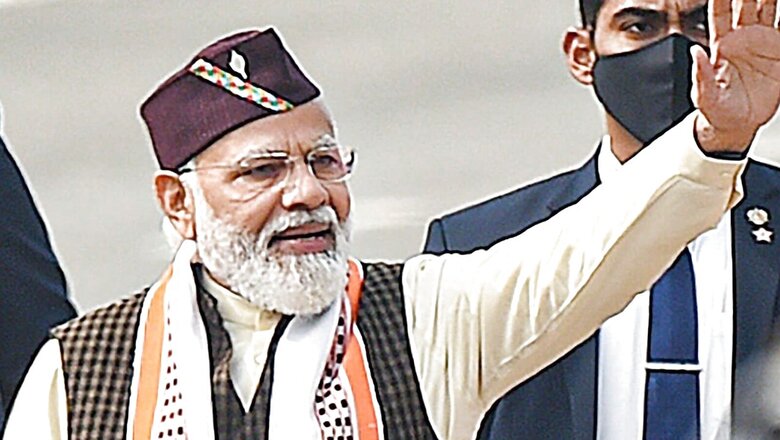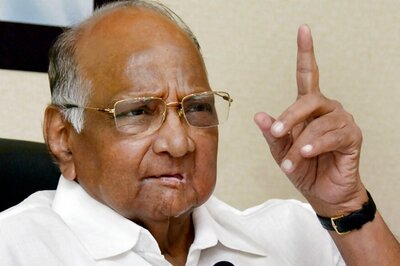
views
Successful implementation of Narendra Modi government’s pro-poor and social welfare-related schemes with a special focus on women’s upliftment has contributed largely to the BJP getting a comfortable majority in Uttarakhand with 48 seats. BJP’s rival Congress got 19 seats and 2 seats each went to the BSP and the Independents in the 70-member Assembly.
Undoubtedly, many of these PM flagship schemes and centrally-sponsored plans, like the Pradhan Mantri Ujjwala Yojana which helped free women from smoking chullahs (hearths) and gave them access to LPG, or the one that provided clean drinking tap water, or that built clean toilets for those living in Uttarakhand’s far-flung and remote areas, besides providing free ration and medical facilities during the COVID pandemic across the Himalayan state, did wonders and helped the saffron party bag 48 seats out of total 70 seats. This has not come as a surprise to most cross-section of voters. Many of them said they were pretty confident of their support to the BJP, primarily because of the “Modi factor”.
“BJP’s was a more than expected victory in the current polls and was rather a foregone conclusion keeping in view Modi’s wider popularity graph and the way huge percentage of women belonging to different sections and others were benefitted by these schemes,” said a Dehradun-based housewife Sarita Negi.
Also Read: This is What Explains Success of AAP, the Political Unicorn of IITian Arvind Kejriwal
Dispassionate and unbiased analyses of the voting pattern in most Assembly seats reveals that the Modi magic had a deeper and wider impact in the hearts and minds of the masses. The way he addressed the huge gatherings during his recent trips to Dehradun, Kedarnath and Badrinath shrines considerably helped infuse confidence among people to fight against COVID-19. The PM’s promise that the government would extend all possible help in the hours of crisis drew support for the BJP in a big way.
The voting pattern also revealed that while maximum voters seem to have extended their unflinching support to the BJP owing to the Modi factor, cross-section of male voters do not appear to have toed a similar line.
Despite the considerable impact of the anti-incumbency factor owing to wrong and unpopular policies formulated by former CM Trivendra Singh Rawat, people chose to ignore it due to the predominance of the Modi factor in a big way. For the people of Uttarakhand, their direct connection with Prime Minister Modi cancelled the effect of anti-incumbency against the state leadership.
Also Read: Verdict is Out: UP Fuels Modi-Yogi Double Engine to Power India in 2024
One of the interesting features of the voting pattern was that it also did justice in defeating those who did not deserve to be elected. Defeats of former CM Harish Rawat from Lalkuna in Nainital and current Uttarakhand CM Pushkar Singh Dhami from Khateema in Udham Singh Nagar district are glaring examples of how “Janta Sab Janti Hai” (voters know everything).
Despite being one of the Congress’ towering leaders, Harish Rawat has been virtually reduced to a spent force after he lost the previous Assembly election and later the Nainital parliamentary seat in Uttarakhand. Similarly, Pushkar Singh Dhami, who was the MLA from Khateema, lost his reputation as an honest and upright CM after he was seen as going slow on certain corrupt members in his cabinet. The CM office in Dehradun, however, said these were baseless charges against Pushkar Singh Dhami. “If Dhami Ji was defeated from his Khateema seat, there must be some solid reasons for it,” said a BJP functionary.
D. S. Kunwar is a senior journalist based in Dehradun. The views expressed in this article are those of the author and do not represent the stand of this publication.
Read all the Latest Opinion News and Breaking News here



















Comments
0 comment